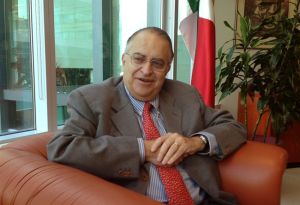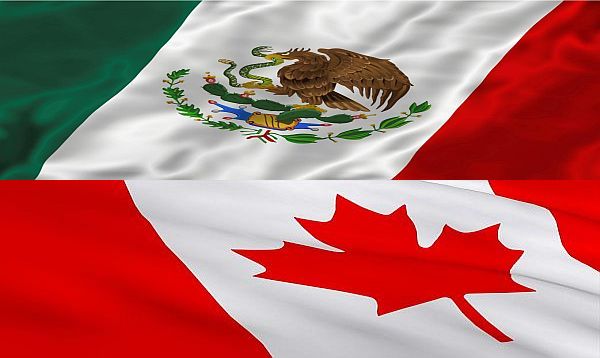Ottawa, Canada - The Mexican ambassador to Canada, Francisco Suarez, has said that Mexican President Enrique Pena Nieto will not make a planned official visit to Canada next year unless the Canadian government acts to remove the requirement that Mexicans obtain travel visas before visiting Canada.
If the Mexican President were to cancel his trip, it would cast a shadow over the festivities that Mexico and Canada are planning for 2014 to celebrate the 20th anniversary of NAFTA and the 70th anniversary of bilateral relations.
 |
| Mexican Ambassador to Canada Francisco Suarez |
Ambassador Suarez has said that Mexico would like to see a "roadmap" put in place which he hopes will eventually lead to the removal of the requirement. This, he told the Canadian press, would ensure that the matter is not forgotten.
"We are now saying that this is a major irritant," Mr Suarez said. "We're now really mad. Canada has the most stringent visa system for Mexicans of any country in the world. President Pena Nieto cannot come here if the topic is not solved."
Intergovernmental Cooperation at Risk
While Mexico's relations with Canada is generally very good, Mr Suarez warned that the visa issue could become an obstacle to deepening economic co-operation in areas such as energy and natural resources.
When Pena Nieto visited Canadian Prime Minister Stephen Harper in Ottawa last November, just days before he was officially sworn in as president, he appeared friendly and conciliatory about the work that still needed to be done to lift the visa.
The two leaders have met at other international gatherings since then and have developed an "outstanding rapport," while the tone between senior cabinet counterparts is also considered positive.
"The relationship is so good, the opportunities are so good. The agenda is so high level with things to celebrate and to expand, it's really a great pity that there's this thorn, this irritant." the ambassaor said.
Prime Minister Harper has said that he would like to see the visa requirement removed but Canadian immigration has concerns about abuse of the asylum system by Mexicans.
Canada imposed the visa requirement for visitors from Mexico in 2009 after a spike in the number of Mexicans claiming asylum. The visa was introduced as a way of screening out those likely to claim asylum in Canada. It had limited success. There were still about 6,000 asylum claims from Mexicans in 2011, 83 percent of which were rejected.
Designated Country of Origin List
In 2012, the Canadian government, worried that its asylum system was being abused, announced that it would reform its asylum procedures. The then immigration minister Jason Kenney announced the "Designated Countries of Origin list," consisting of 35 countries which are deemed to be "safe."
The Canadian Government says that the countries on the list "respect human rights and do not normally produce refugees." Applications from nationals of the "safe countries" on the list will be decided in 30-45 days. Applicants from designated countries whose applications are refused have no right to appeal refusals to the Refugee Appeal Division of the Federal Court. They can therefore be removed from the country quicker.
Before the changes were introduced, asylum applications took about eighteen months to be decided.
Hungary Asylum Claims Cut by 98 Percent
The Designated Country of Origin system was introduced at the end of December 2012. The Canadian government issued a statement in February 2013 saying that asylum claims from Hungary, the top source country for asylum claimants in 2011 and 2012, had already been cut by 98 percent.
Since then, Mexico has been placed on the Designated Countries of Origin list. Human rights campaigners objected, saying that "Mexico is not a safe country in which to live." Nonetheless, the fact that Mexico is now on the list may persuade Canada to remove the visa requirement and could therefore avert a diplomatic row.
A Lot of Useless Information
Mr Suarez has spoken out about Canadian visas before. In July 2013, he complained that Canadian visa application forms request "a lot of useless information that goes against common sense."
"Canadian visa forms four times longer than those of the US," he said. "Mexicans have an easier time getting into the United States, which has serious border and immigration issues, and face no such restrictions in European Union countries."
He complained that he was offended at having been asked to disclose where and when his parents had died. "They"re dead. Twenty years ago. Why do I have to give that information?" he said. He advised Canada to "get rid of the useless information."
Source: The Canadian Press


